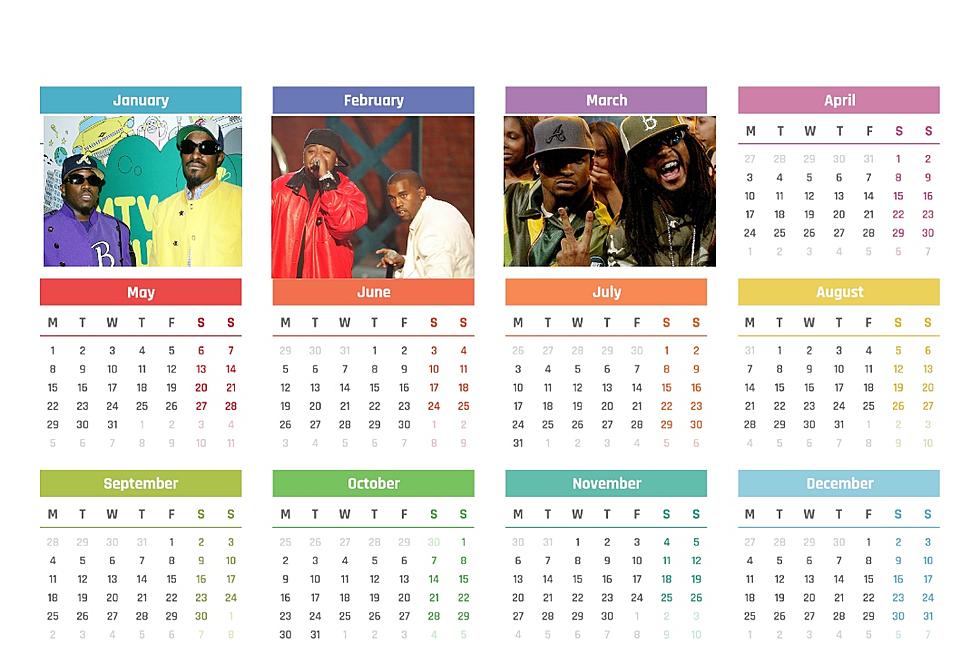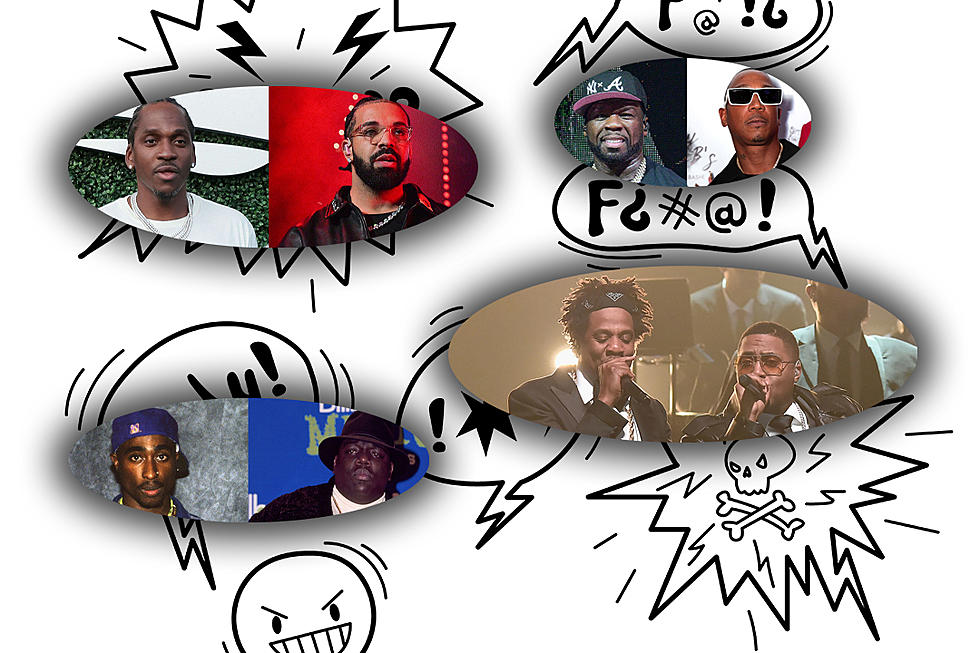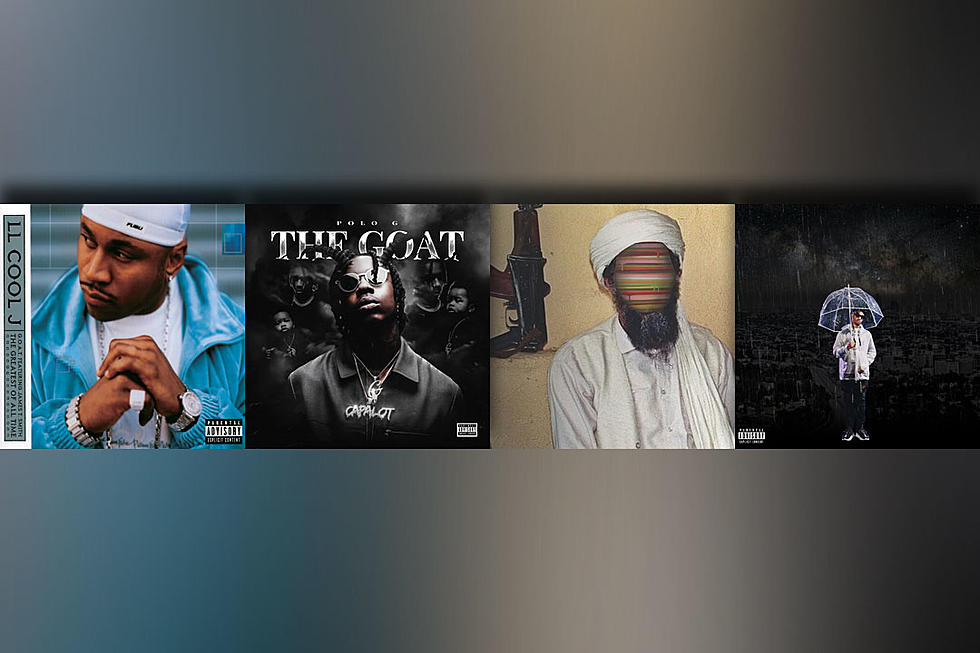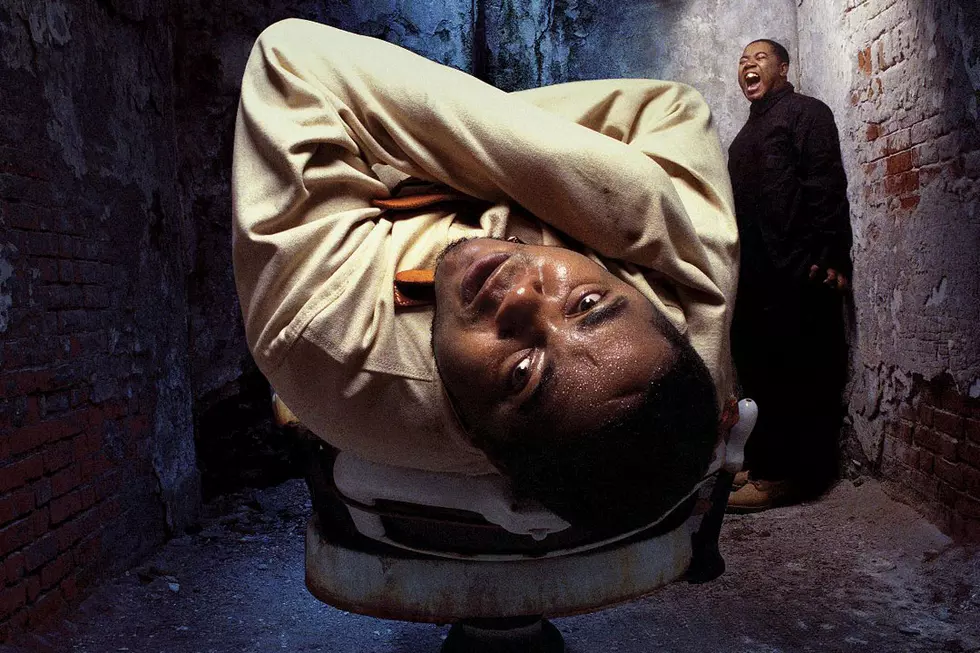
Twista Struggles To Capture The Glory Of His Past Days On ‘The Dark Horse’
To much radioplay and success worldwide, Twista donned the deserved cool of a pimp graciously extending the perks of his fame to a love interest with 2004’s “Overnight Celebrity.” But in many people’s eyes, he could’ve just as easily been addressing himself in some sort of weird Shakespearean monologue in many people’s eyes. This is a little unfair. Before “Slow Jamz” propelled Twista into the spotlight, he had garnered a solid reputation as a flamethrower of a spitter with a few heavily slept on albums to his credit. But post-Kamikaze, Twista has not exactly lived up to expectations and despite a few smash radio hits like “Wetter” and “Make A Movie,” his somewhat lackluster albums like The Perfect Storm trail in totality trail in comparison to the lyrical dominance displayed on Chris Brown’s “Look At Me Now” remix. His inconsistent track record, coupled with few and far between releases, seem to invoke the “ehhh” feeling of oh-yeah-I-forgot-about-that-dude sentimentality in view of his latter career moves.
Ten years removed from his Kamikaze heights, it would appear that The Dark Horse (no Katy Perry) is an answer to those critics who believe that Twista’s tenure as a primetime figure in hip-hop are over, but sadly it’s not. The LP starts off promising, top-heavy with cuts will temporarily lay waste to these detractors, like the album intro “The Dark Horse,” where a chorus of (“Did you forget about me?”) is accompanied by the battle-tested rapid-fire flow that Twista has rested his laurels on for decades. “I Am Such A Mobsta” is another winner, as the Chi-Town MC spits some real talk about the war raging in Chi-Raq. On “Devil Angel’s,” he beastmodes his way throughout. But speaking of beastmode, despite a booming baseline, Twista uses his fast-paced delivery as a smokescreen for some pretty unimpressive bars.
Around the midway point and after a strong start, audiences may be a tad nonplussed by Twista’s creative direction. What mostly follows is run-of-the-mill cuts aimed at the ladies, such as “Getting Paper” and “Nothing Like Me,” two wholly forgettable efforts. The most puzzling aspect of these songs is not necessarily the decision to sacrifice his old-school Adrenaline Rush mentality to R. Kelly standards, 12 Play-ing his audience into submission, but the mediocre essence about them. “It’s Yours” is a return to normalcy, but a track like “Nothing Like Me” is a tame effort for a man who has, throughout his career, walked the thin line of targeting female audiences with incredible accuracy, such as “Slow Jamz,” “Chocolate Fe's And Redbones,” and “I’m A Winner.” Who could forget his cherry on the top performance on the perennial Do or Die classic “Do U?” Twista doesn’t disappoint with his verses, but the songs never amount to anything remotely memorable in comparison to the cuts mentioned above.
At one point, a total identity crisis ensues. Twista recently spoke with XXL about how he aimed to explore different terrains and give audiences more of a varied approach. But the end product is disappointing. The need-for-speed bars don’t dissipate at any point, but Twista fails miserably when he tries to reinvent himself and squeeze his way into the Top 40 party-starters VIP crowd, like on “One More Joog” or “Want My Love.” The latter, featuring DJ Vicoriouz, features a bland hook of (“Girl you know you want my love/Girl you know you need my love”).
Trends in music are rapid, and even an long-winded artist like Twista is lapped by the times on The Dark Horse. This is augmented to horrific levels on “Crisis,” a much-hyped collaboration with Tech N9ne sounds wholly out of sync. Same story with the Taylor Gang collab “Burnin’,” which only suffers because of the flat performances of Wiz Khalifa and Berner. In his effort to be different, Twista ultimately succumbs to the cliché moniker of being a “follower not a leader."
The problem with The Dark Horse really comes down to lacking any sense of direction rather than a display of mediocre talent. Too often Twista is dragged down by the performances of his superfluous guests, or an overall misguided push for imaginative ventures. Recent veterans like Nas and Mobb Deep have cooled their attempts to nestle in the contemporary mix, effectively transitioning to the paths that propelled them past their competition in the first place. On “6 Rings,” Twista reverts back to his “Kill Us All” days and ends things on a high-voltage note. One can only hope that Twista follows suit with his next project.—Kellan Miller
More From XXL









